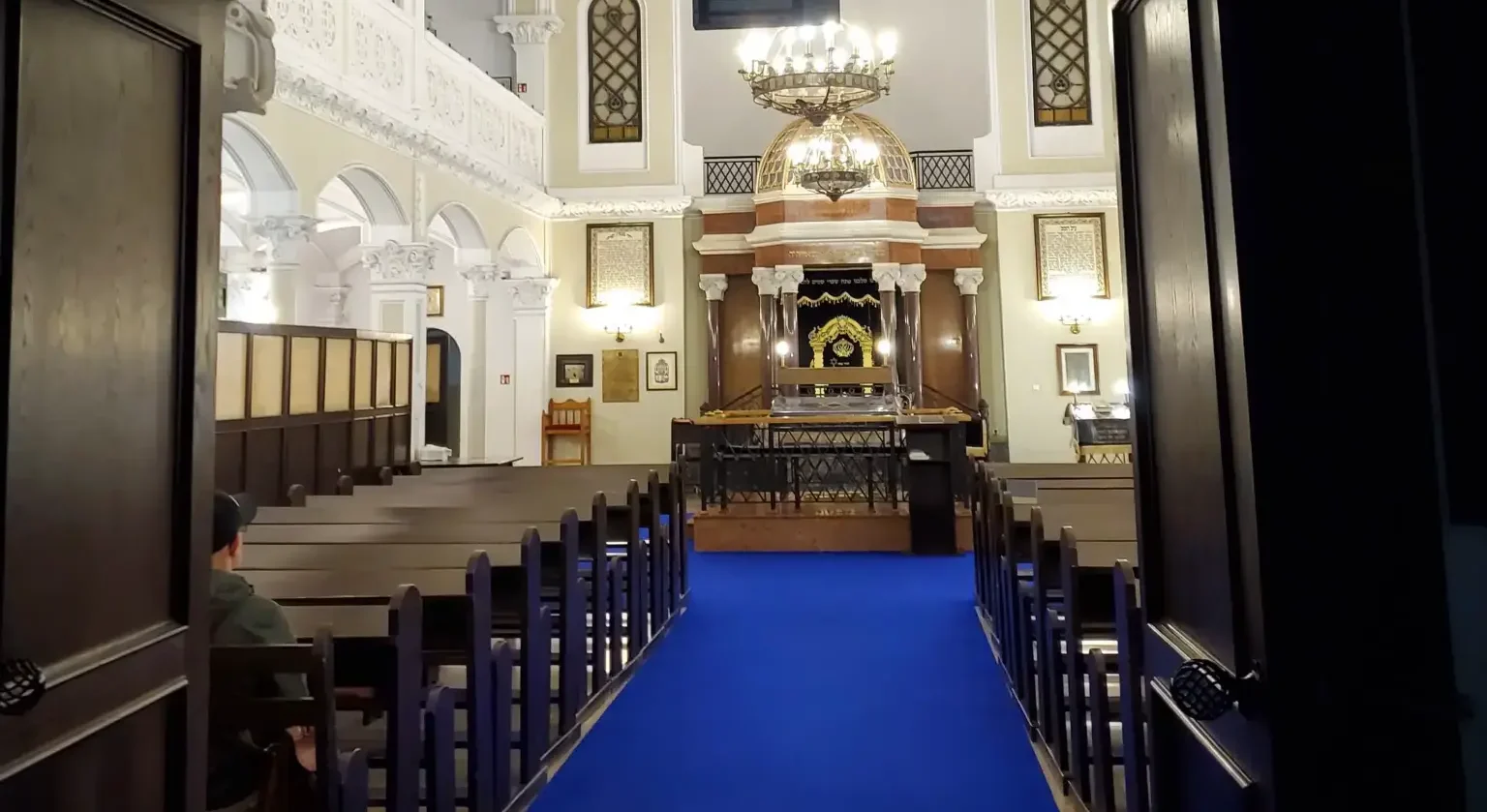This guide to travel in Poland is tailored for Jewish-American university students preparing to study abroad in Warsaw. Learn about Poland’s long Jewish history and find out where to find a kosher meal while abroad. We’ll also cover some major museums, historical sites, and day trips. Most importantly, we’ll get you moving on engaging with the local Jewish community and finding a welcoming synagogue.
A Brief History of Jews in Poland
The Jewish presence in Poland dates back over a thousand years and Jews have had a signifcant impact on Polish history.
Bolesław III (1102–1139) saw Jewish immigration as a way to build up Poland’s economic power with craftsmen and traders. His relatively liberal policies led to the first major influx of Jewish immigrants to Poland, which at the time stretched into modern-day Lithuania and included much of modern Ukraine.
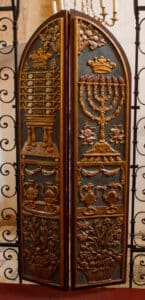
These liberal policies were strengthened by Casimir the Great (1303–1370). His General Charter of Jewish Liberties, the Statute of Kalisz, strongly protected Jewish rights and ensured freedom of worship, trade, and travel.
By the 16th century, more Jews lived in Poland than in any other European country. Jewish schools flourished. Yiddish and Hebrew printing presses in cities like Krakow and Lublin were among the most prolific in the world. Figures like Moses Isserles and Solomon Luria gained international repute, shaping Jewish law and thought across Europe.
By the 18th century, Polish power waned and the state ceased to exist after its partitioning between Russia, Austria, and Prussia. Austria and Russia absorbed most of Poland’s Jews, with Austria maintaining liberal policies while Russia became increasingly restrictive. When Poland was restored after WWI, pogroms that had begun under Russia continued in Poland. Poland’s government was pressured to enact a new constitution in 1921 guarantying Jewish rights as citizens. As the situation stabilized, Poland absorbed many Jews from the USSR. At the dawn of WWII, Poland was home to 3.5 million Jews.
The Holocaust was particularly horrific in Poland, with 90% of Polish Jews perishing or fleeing. Afterwards, the surviving Jewish community in Poland faced communist repression, leading to still further emigration. When communism fell in 1989, Jewish life gradually revived. Synagogues and other cultural and educational institutions have been reopened and refurbished and otherwise have reentered public life.
Today, Jewish culture in Poland is celebrated in museums, academic institutions, and events like the Krakow Jewish Culture Festival. Poland see a large number of Jewish tourists arrive each year to explore the Poland’s profound Jewish history – and often to connect with personal family histories that connect to Poland’s once thriving Jewish population.
The modern era has seen efforts in Poland to confront and reconcile with its Jewish past, including the preservation of Jewish heritage sites and public education on Jewish history.
Synagogues in Warsaw
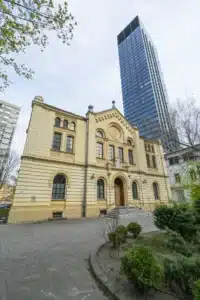
Nożyk Synagogue: The Nożyk Synagogue is the only surviving prewar Jewish house of prayer in Warsaw. It was built between 1898 and 1902 and financed by a philanthropist couple, Zalman Nożyk and his wife Ryfka. During World War II, the synagogue was within the Warsaw Ghetto boundaries but remained relatively undamaged. Post-war, it was restored and continues to serve as a center for Jewish religious and community life in Warsaw. Read more about visiting this historic synagogue here.
Beit Warszawa Synagogue: Beit Warszawa is a relatively new addition to Warsaw’s Jewish community, representing the progressive Jewish movement in Poland. It was established to foster a modern and inclusive approach to Judaism. The synagogue hosts various cultural and educational events, aiming to revive Jewish life in Warsaw in a contemporary context.
Masorti Centrum Ki Tov: Ki Tov is the Conservative Jewish Community in Poland, established in Warsaw in 2016. It provides a welcoming space for worship, emphasizing traditional Halachic values alongside a progressive approach. Reflecting the legacy of pre-war Progressive Judaism, Masorti Centrum Ki Tov aligns tradition with modernity.
Chabad Lubavitch Synagogue: This synagogue is part of the Chabad-Lubavitch movement, known for its outreach and support to Jewish communities around the world. The Chabad presence in Warsaw provides religious services, educational activities, community events, and lots of travel information aiming to connect Jews with their heritage in a welcoming environment.
Cultural Institutions and Landmarks in Warsaw
Warsaw Jewish Community Center (JCC) offers various programs from meetings with memory keepers to culinary masterclasses. They also host kosher meals on Mondays, Fridays, and Sundays.

The POLIN Museum of the History of Polish Jews is one of the world’s most ambitious Jewish history museum, dedicated to preserving and presenting the 1,000-year history of Jewish presence in Poland and to promote tolerance, understanding, and mutual respect. It serves as a space for learning, reflection, and dialogue, exploring the rich cultural and religious heritage of Polish Jews and their role in Polish history. Read more.
Memorial Route of Jewish Martyrdom and Struggle in Warsaw is a series of monuments in central Warsaw, near the POLIN Museum, that document Jewish history and especially the Warsaw Uprising.
Jewish Historical Institute in Warsaw is a museum that doubles as an educational and research center in Warsaw. The preserve the Underground Archive of the Warsaw Ghetto, support genealogical research, publish scholarly works, display Jewish art, and develop IT tools to improve future research, to name a few of their activities.
Bródno Jewish Cemetery is the oldest of all Jewish cemeteries in Warsaw. Originally opened in 1780, it was the main cemetery for Jews in Warsaw until WWII. It was devastated by the Nazis and later the Communists. Various efforts have been made to restore it and, although progress has been made, the cemetery is largely in ruins, but is also a fascinating historical site.
The Okopowa Street Jewish Cemetery still contains over 150,000 of the original 250,000 marked graves (in addition to mass graves). It is also largely in utter disrepair, but a valuable historical site and one the that local Jewish community has been trying to restore for years.
Elsewhere in Poland
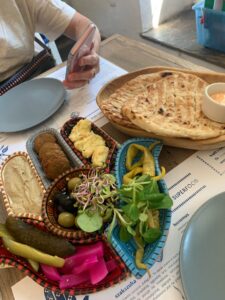
Krakow’s Kazimierz Jewish Quarter was once the heart of a thriving Jewish community in Krakow. Although fewer than 200 Jewish residents remain here, it is frequented by Jewish tourists and you’ll find Jewish restaurants serving kosher food, a Jewish bookstore, and even a festival of Jewish culture that takes place every June. There are trendy coffee shops and vintage stores nestled right next to some of the oldest synagogues in Poland.
Auschwitz has been turned into a museum complex open to the public to remember the terror and inhumanity of the Holocaust.
Jewish Food and Staying Kosher in Warsaw
SRAS graduate Nya Feinstein has written an extensive guide to Warsaw’s few kosher restaurants as well as general advice on staying kosher in the city. Read her guide to Kosher Food and Jewish Food Traditions in Warsaw here.
Antisemitism and Acceptance
Poland is safe for Jewish travel and hosts hundreds of Jewish tourists every year. There is no need to hide your identity here and openly wearing Jewish symbols and clothing is accepted. That said, antisemitism and far right movements do exist here. Just take the same general safety precautions that anyone would need to take when visiting a major city. While you are just as likely to see passing evidence of antisemitism in Poland as you are anywhere else, students who have visited Poland have reported an overwhelmingly positive experience.
Before Your Trip
Before you go, here are a few tips from previous Jewish students who have stayed in Poland:
- If you plan on visiting the Warsaw Chabad, send an email or text to the Rabbi before arrival to ask any questions and clarify details for your visit.
- Communicate with SRAS, your instructors, and guides to discuss accommodations for Shabbat, meals, and any other concerns.
- Attend all SRAS briefings and always research the history and peruse news sources about any destination you travel to. This will help you learn more from it and keep yourself safe.
Safe travels, and enjoy your time in Poland!
You’ll Also Love
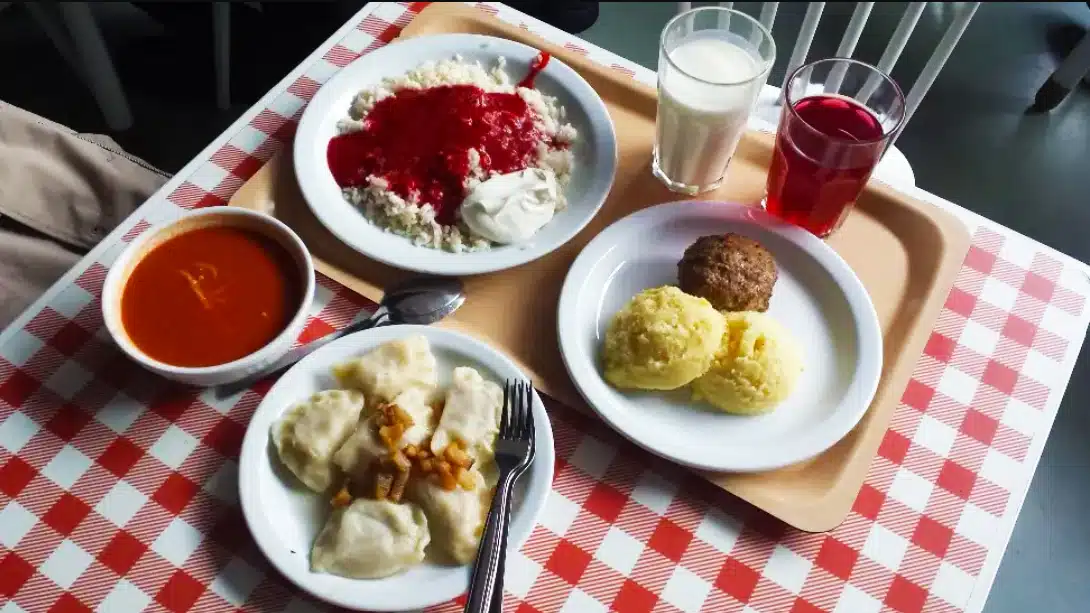
Milk Bars: Warsaw’s Proletarian Food Culture
This is a quick introduction to Warsaw’s milk bars, which are important cultural institutions as well as great places to eat, and to the Polish food they offer and the Polish language needed to order in them. While English-speaking eating establishments can be found, they will typically be more expensive and less of an important […]
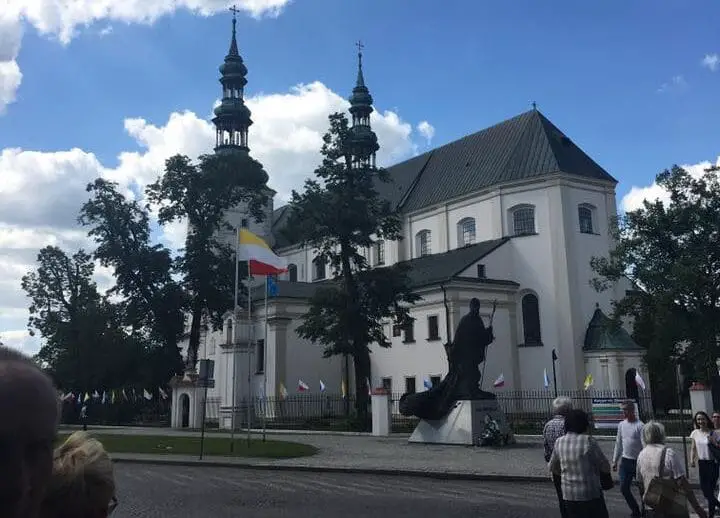
Corpus Christi in Poland: Student Observations
Corpus Christi is a Catholic holiday celebrating the Blood and Body of Christ. Since Poland is majority Catholic, most stores and eateries in the country are closed for this very popular day. As a participant in SRAS’ study abroad programs in Warsaw, I was given the opportunity to spend the day with my peers to […]
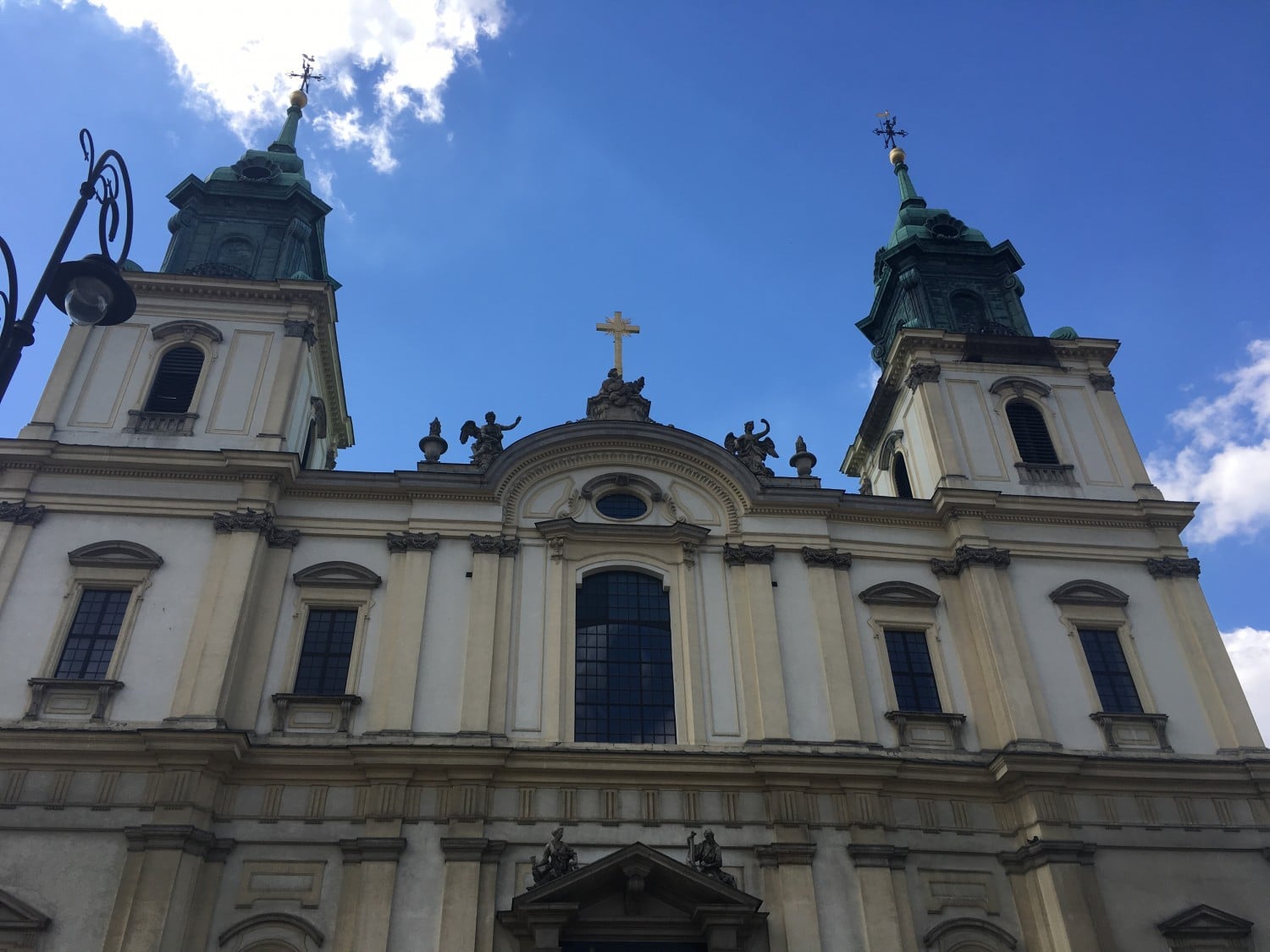
Going to Catholic Mass in Warsaw, Poland
Before I ventured over “The Pond” to Europe, I made a promise to my mom that I would go to at least one service in a Catholic Church while I was there. Keeping my promise, I traveled to the Warsaw Old Town where it seemed like my choices of services were plenty on a Sunday […]
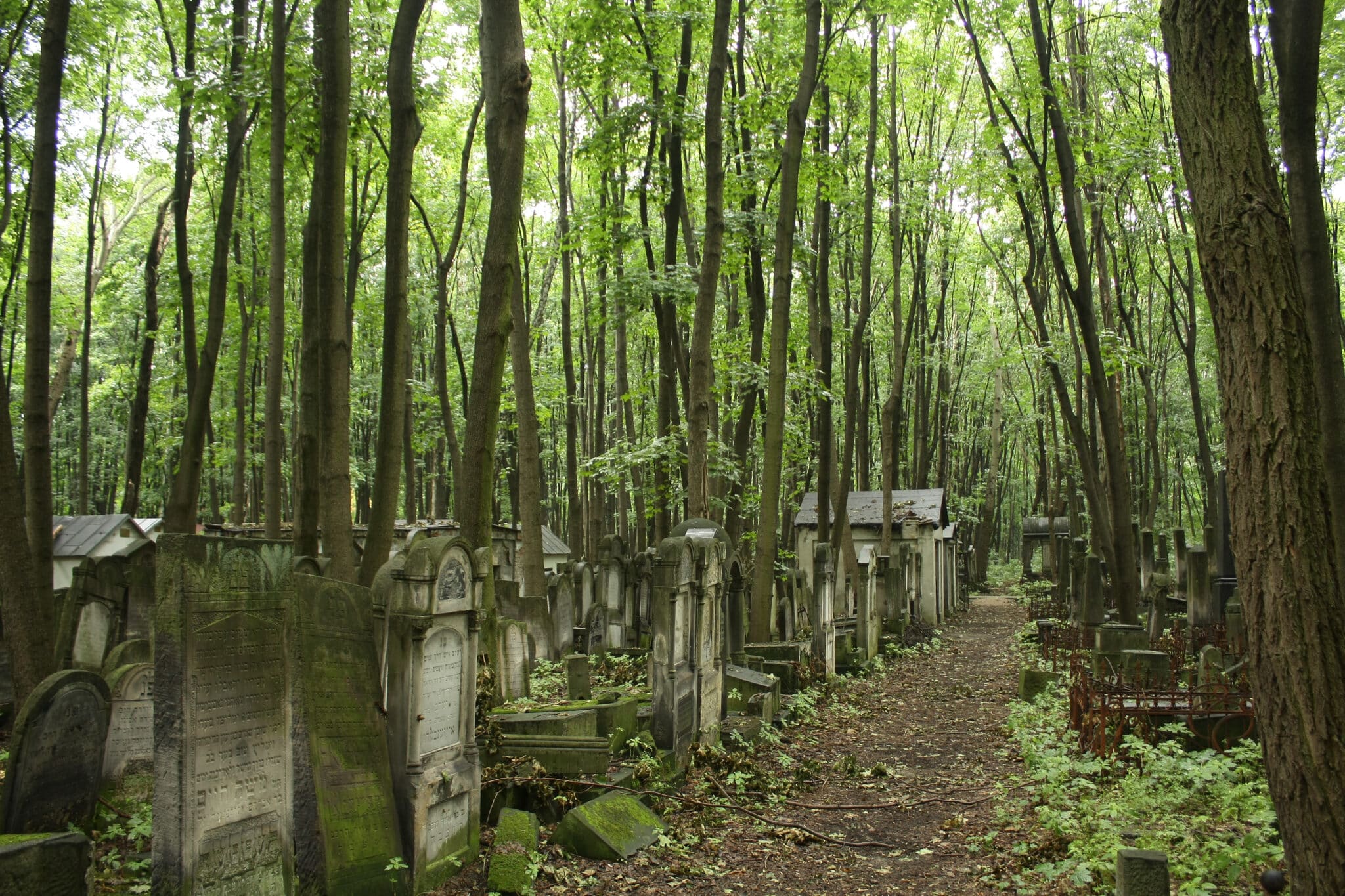
Warsaw’s Jewish Cemeteries
Warsaw, a city deeply entwined with Jewish history, hosts two large Jewish cemeteries. Although one is currently still active, both are in states of severe disrepair. The largest of these is the Okopowa Street Jewish Cemetery, one of the largest Jewish burial grounds in Europe. Spanning approximately 33 hectares (about 63 American football fields), it […]
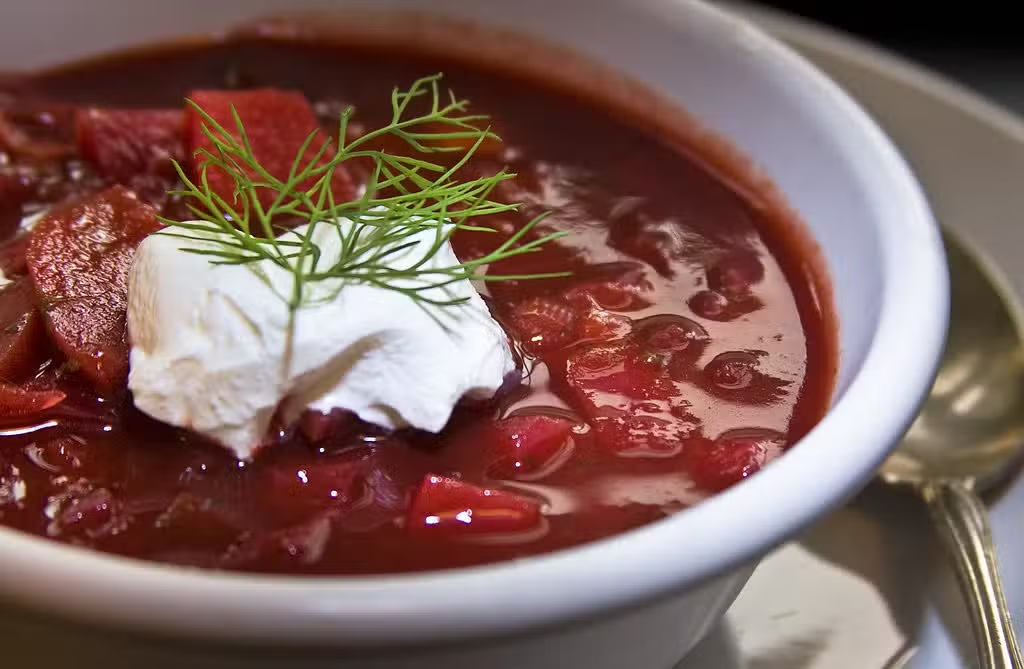
Borsch: The Slavic Signature Soup
Borsch (Борщ) is one of the most popular soups in Central and Eastern Europe and Northern Asia. It is sweet and sour, healthy and can be eaten at any time of year. It has a complicated and very long history, with the soup changing over time within various geographic regions. Today, the broadly recognized “standard” borsch […]

